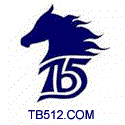Emergency
From Wikipedia, the free encyclopedia
An emergency is a situation which poses an immediate risk to health,
life, property or environment.[1] Most emergencies require urgent intervention
to prevent a worsening of the situation, although in some situations,
mitigation may not be possible and agencies may only be able to offer
palliative care for the aftermath.
Whilst some emergencies are self evident (such as a natural disaster
which threatens many lives), many smaller incidents require the subjective
opinion of an observer (or affected party) in order to decide whether
it qualifies as an emergency.
The precise definition of an emergency, the agencies involved and
the procedures used, vary by jurisdiction, and this is usually set
by the government, whose agencies (emergency services) are responsible
for emergency planning and management.
Defining an emergency
In order to be defined as an emergency, the incident should be one
of the following:
* Immediately threatening to life, health, property or environment.
* Have already caused loss of life, health detriments, property damage or environmental
damage
* Have a high probability of escalating to cause immediate danger to life,
health, property or environment
Whilst most emergency services agree on protecting human health, life
and property, the environmental impacts are not considered sufficiently
important by some agencies. This also extends to areas
such as animal welfare, where some emergency organisations cover this
element through the 'property' definition, where animals which are
owned by a person are threatened (although this does not cover wild
animals). This means that some agencies will not mount an 'emergency'
response where it endangers wild animals or environment[citation needed],
although others will respond to such incidents (such as oil spills
at sea which pose a threat to marine life). The attitude of the agencies
involved is likely to reflect the predominant opinion of the government
of the area.
Types of emergency
Dangers to life
Many emergencies cause an immediate danger to the life of people involved.
This can range from emergencies affecting a single person, such as
the entire range of medical emergencies which include heart attacks,
strokes and trauma, to incidents affecting large numbers of people
such as natural disasters including hurricanes, floods or mudslides.
Most agencies consider these to be the highest priority of emergency,
which follows the general school of thought that nothing is more important
than human life.
Dangers to health
Some emergencies are not immediately threatening to life, but might
have serious implications for the continued health and well-being of
a person or persons (although a health emergency can subsequently escalate
to be threatening to life).
The causes of a 'health' emergency are often very similar to the causes
of an emergency threatening to life, which includes medical emergencies
and natural disasters, although the range of incidents which can be
categorised here is far greater than those which cause a danger to
life (such as broken limbs, which do not usually cause death, but immediate
intervention is required if the person is to recover properly)
|













 Orangutan
Orangutan